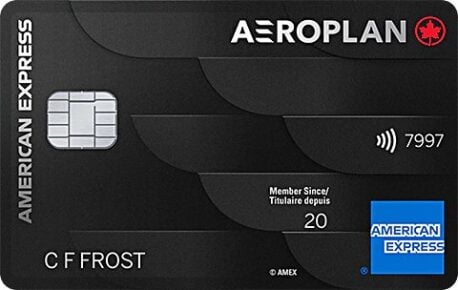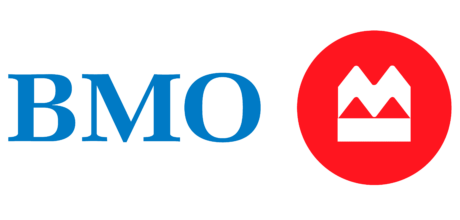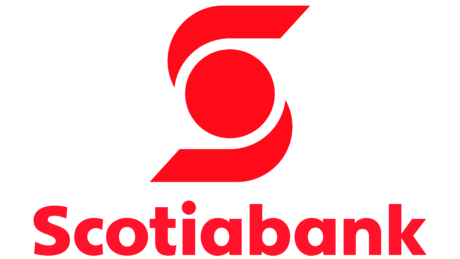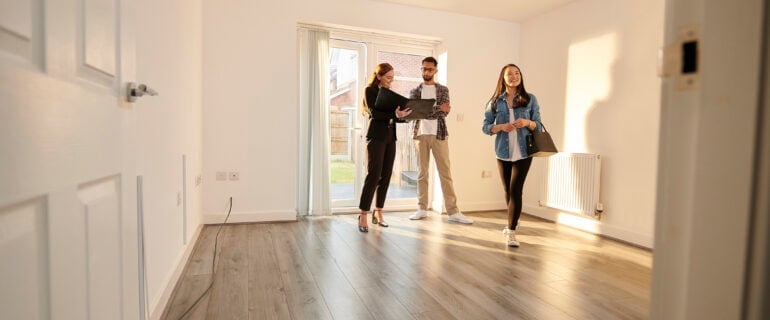First-time home buyers now have access to a new savings and investment tool to help them prepare for their initial run at the housing market: the First Home Savings Account.
Combining aspects of tax-free savings accounts and registered retirement savings plans, the FHSA is a registered account in which you can save up to $8,000 per year to a maximum of $40,000.
Let’s find out more about the FHSA and see if it can get you closer to your dream of buying your first home.
Where can you sign up for an FHSA?
Even though the First Home Savings Account was launched on April 1, 2023, Canadian financial institutions still seem to be getting their offerings in place. As of May 10, 2023, you can sign up for an FHSA at:
We’ll update this page as more FHSA options hit the market.
How the First Home Savings Account works
Eligible Canadians can set up a First Home Savings Account at any financial institution that offers TFSAs and RRSPs: banks, credit unions, life insurance companies and Canadian trust companies. An FHSA should be easy to open and fairly straightforward to use.
You can deposit funds into your First Home Savings Account up to an annual contribution limit of $8,000, and a lifetime contribution limit of $40,000. Like an RRSP, those contributions are tax-deductible, which is one of the FHSA’s more interesting benefits.
The money in your FHSA can be used to purchase various investment products, like mutual funds, stocks, bonds and guaranteed investment certificates. You won’t have to pay taxes on any of the gains these investments generate — another nice perk.
When you purchase your first home, you’ll submit a request to your FHSA issuer that confirms your eligibility to make a qualifying withdrawal. If all’s well, you’ll receive your savings and put the full amount toward your down payment, deposit or closing costs tax-free.
FHSA withdrawals
Because the First Home Savings Account is designed to help home buyers, only withdrawals put toward a home purchase will qualify and receive tax-free treatment.
To make a qualifying withdrawal, you must:
- Be a first-time home buyer.
- Reside in Canada at the time of your withdrawal.
- Have a written agreement to buy or build a home in Canada before October 1 in the year that follows the year of withdrawal. If you plan to withdraw your FHSA funds on December 1, 2023, for example, you’ll have to have such an agreement in place by October 1, 2024.
- Intend to use the home as your principal residence within one year of buying or building it.
If your withdrawal doesn’t meet these conditions it will be considered non-qualifying.
Non-qualifying FHSA withdrawals will be added to your taxable income for the year, which could lead to an outsized tax bill. Your FHSA provider will also collect a withholding tax on non-qualifying withdrawals that’s “consistent with the treatment applicable to taxable RRSP withdrawals,” and those penalties can be steep[1].
You can, however, transfer money from a First Home Savings Account to an RRSP or registered retirement income fund on a tax-free basis. These transfers won’t reset your lifetime FHSA contribution limit, but they won’t reduce your RRSP contribution room either.
Other FHSA contribution rules
In addition to the $8,000 yearly and $40,000 total contribution limits, there are a few other rules to keep in mind when funding your FHSA.
Unlike with RRSPs, your annual FHSA contribution limit applies to a calendar year, and doesn’t include the first 60 days of the following year. After December 31, the contribution time for any particular year is up.
If you don’t hit your annual FHSA contribution limit, the leftover amount carries over to the next year. If you contribute $4,000 in 2023, for example, you’ll have $12,000 worth of contribution room to work with in 2024.
You can hold more than one FHSA, but you have to adhere to a single annual and lifetime contribution limit. If you go over your annual contribution limit, you’ll be taxed at a rate of 1% per month on the excess contribution amount. Your over-contribution will be applied to next year’s total once January 1 rolls around.
You can help your spouse or common-law partner contribute to their FHSA by sharing funds with them, but whatever money you provide can’t be claimed as a deduction for tax purposes.
Who is eligible for the First Home Savings Account?
To open a First Home Savings Account, you must:
- Be a resident of Canada.
- Be at least 18 years old.
- Be a first-time home buyer.
According to the federal government, you’re a first-time home buyer if you:
- Have not owned a home in which you lived at any time in the calendar year before opening your FHSA.
- Have not owned a home in which you lived at any time in the preceding four calendar years.
If you own property through beneficial ownership, like a corporation, you won’t be eligible for the program.
Will the First Home Savings Account actually help you buy a house?
That’s the $40,000 question. Answering it means weighing the FHSA’s benefits and drawbacks.
Tax advantages
The FHSA’s tax advantages could make it helpful. If you’re able to pay less in tax or score a larger refund, that extra money can be put toward your home purchase savings. It can make up part of your annual FHSA contribution or be funnelled into other savings/investment vehicles. Depending on how much your tax refund improves, you could also use it to pay down outstanding debt and improve your credit standing — all things that may help you get approved for a mortgage at a lower rate in the future
Better than the Home Buyers’ Plan?
The FHSA could be more advantageous than the Home Buyers’ Plan, which allows you to use up to $35,000 of your RRSP savings for a first home purchase. Unlike the HBP, the FHSA doesn’t require you to repay the amount withdrawn, and the FHSA’s contribution limit is higher.
There is the option of combining your FHSA with the Home Buyers’ Plan and giving your home buying budget a little extra juice. But because of the FHSA’s annual contribution limits, it’ll take time to grow your account’s balance. That may not be helpful if your RRSP is already well funded and you’d like to make use of the HBP in the next year.
Modest contribution limit
Unless housing prices fall dramatically, it’s hard to see how FHSAs will cover much more than deposits on pre-construction properties or closing costs in most markets. And prices could rise in the five years it takes to save the full $40,000.
But if you’re determined to buy a house in five years or more, socking $40,000 away in a FHSA is arguably a better option than stashing it in a high-interest savings account or a TFSA that isn’t being used for investing. And if that first home remains elusive, you can always transfer your FHSA savings to an RRSP or RRIF and feel good about putting some money away for retirement. It’s not a bad Plan B.
Frequently asked questions about the First Home Savings Account
Even though the First Home Savings Account is launching partway through 2023, the annual contribution limit remains $8,000. Any amount you don’t contribute can be carried over to the following year. If you save $5,000 in an FHSA in 2023, for example, you’ll have an $11,000 contribution limit in 2024.
The federal government marked April 1, 2023 as the launch date for the FHSA. Most financial institutions weren’t ready to offer FHSAs to their clients at that time, but by mid-April, multiple banks had made FHSAs available.
Article Sources
-
Department of Finance Canada, “Design of the Tax-Free First Home Savings Account,” accessed November 22, 2022.

Find the Best Mortgage Rates in Canada
Compare customized mortgage rates from Canada’s best lenders and brokers for free. Find and easily apply for the lowest mortgage rate for your needs.

Canada Mortgage Payment Calculator
Use this free Canadian mortgage calculator to estimate your monthly mortgage payments, and see how rates and amortization affect total cost over time.

Canada Closing Costs Calculator
Create a more accurate home buying budget by estimating your closing costs — the one-time, upfront expenses you’ll pay before receiving the keys.

Fixed vs Variable Mortgage Rate: Which Is Better For You?
With a fixed-rate mortgage, your interest rate and payments won’t change during your mortgage term. But they might if you opt for a variable-rate mortgage.






